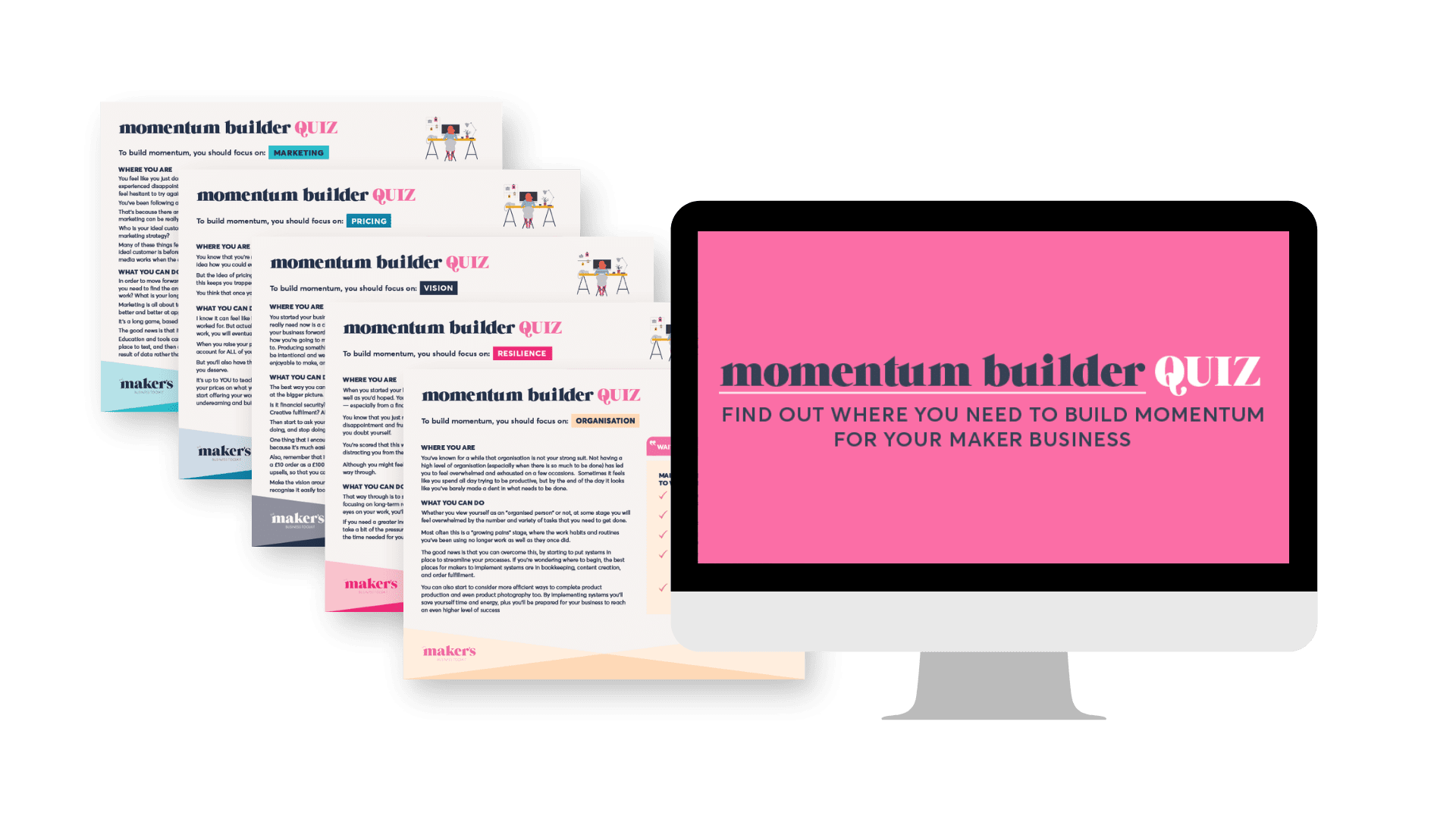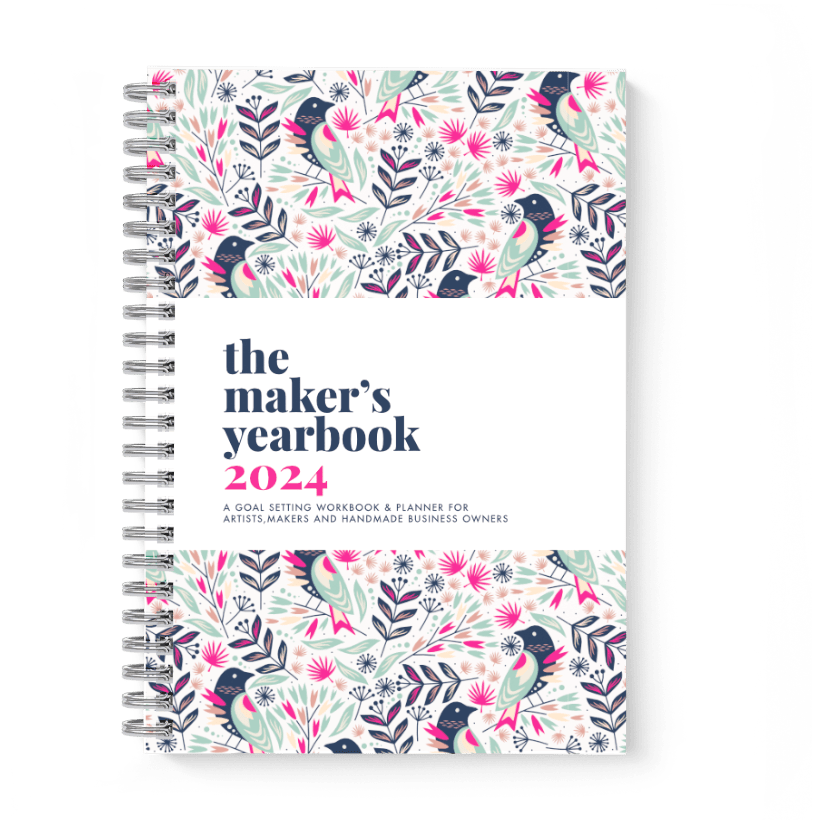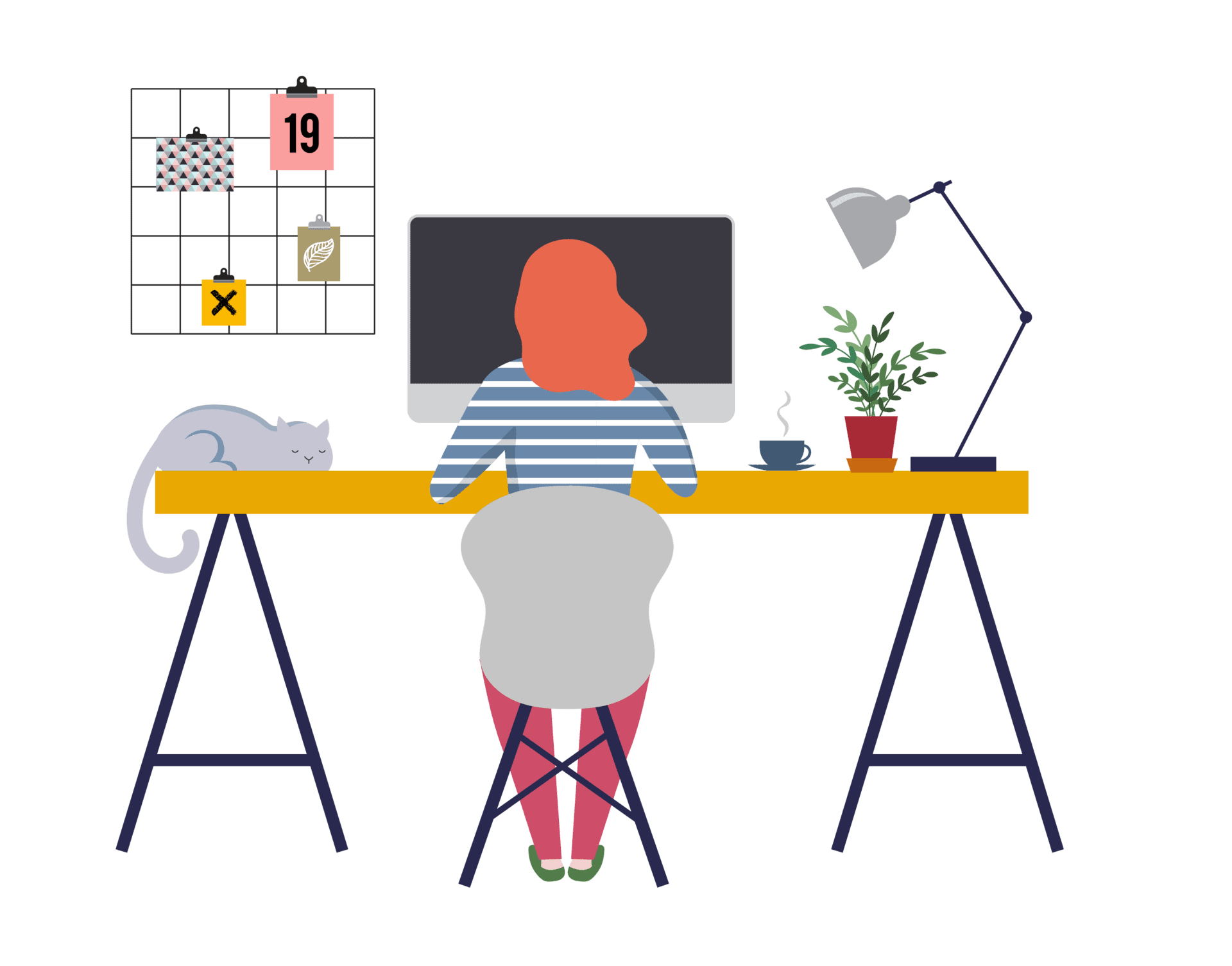When you’re starting a brand new business as an artist, crafter or designer-maker you are going to have to make a LOT of decisions, often about things you don’t have any direct experience of.
It feels like every decision is make or break. You’re also really aware that you really don’t know what you’re doing and maybe you’ll make a terrible mistake that will kill off your business before it even gets started.
Decision making can feel like agony.
It’s exhausting to keep going back and forth, mulling over the options, feeling like you don’t even know which is the best one. And it’s not usually just two. Sometimes there are three, four, ten, twenty different options.
So how can we make it easier to decide which course to follow?
Actually, there’s a very simple solution that most of us only discover after doing it the hard way for FAR too long.
There is only one way to make decisions for your business.
Use the information you have available, to pick the best option and then test it in the most low risk way you can. And if there is no best option then just pick any one and test it in the most low risk way you can.
Now know you’re just about to navigate away from this post because THAT IS THE MOST FREAKING OBVIOUS THING ANYONE HAS SAID EVER but give me a moment to explain.
Yes this is completely obvious. But are you doing it?
Or are you agonising over decisions? Are you doing endless “research?” Are you hemming and hawing asking in Facebook Groups for yet more options, and then hemming and hawing some more?
We all know logically that when making a decision we should look at the arguments for and against and then choose the best option. We all know logically that when there isn’t a best option that we eventually have to just pick one anyway
But we’re not doing it.
Why? Because it’s not about the decision itself. It’s about something else.
It’s about our fears that we don’t know what we’re doing. It’s about our fears that we could unintentionally do something that would get us into trouble, or that would ruin our reputation.
We feel so vulnerable when we start a business for the first time.
We are throwing ourselves into the unknown and our bodies respond in exactly the way that they are supposed to. They initiate the fight or flight response and dump stress hormones into our bloodstream that allow us to protect ourselves.
We’re not facing a sabre-tooth tiger. We’re not in a life or death situation. But our physical and mental reactions are the same as if we were. And it leads to the black or white thinking that is required in those situations.
We need to decide whether to fight or flee. One of them may get us killed so it’s really important we make the right choice.
In your business, this is not how it works.
Every business is different and no one can give you all of the answers. In the end you need to try things and test them to see if they succeed or they fail.
And failing, in this context, is good.
It eliminates one potential option and brings you closer to finding the one that will work. In fact, in business, you need to fail over and over again, in order to succeed.
In business, if you get it wrong you don’t get eaten.
I’m not saying your failures won’t hurt. They might even haunt you for a while. But they will ALL lead to the experience and knowledge you need to be successful next time.
So, it’s important to recognise that when you have decisions to make, your brain and your body is often working against you. It’s important to recognise that you won’t necessarily do what you know you should.
So, if it’s all about fear of danger, what can we do to make it feel safer to fail?
1. Take smaller risks
Don’t let your greed or your desperation take over and coax you into risking more money than you can afford to lose. Sometimes, in an attempt to snap out of our “decision paralysis” we can end up saying “let’s just go for it!” and taking a big speculative risk
All of that pondering and we choose to do something really silly.
It’s bizarre but it happens all the time to really smart people.
We invest a huge sum of money into a big event hoping it is the holy grail of customers we’ve been looking for and, when it is disappointing, we are devastated and financially wiped out.
2. Have a plan for testing things out
So often we embark on a course of action without really having any idea how we’ll know if it is successful. We might end up relying on how we feel about a certain event, or our sales from our online shop and that is never a particularly good indicator of the actual situation.
You need to keep records and analyse them so that you can understand not only whether something is working or not, but whether it might improve with a slight change.
If you’re doing Craft Fairs or other in person events our Free Craft Fair Profitability Tracker is a great tool for helping you gather and analyse more information from the craft fairs you attend.
3. Reframe your attitude towards failure
Failure isn’t the end. It’s just feedback. It gives you really valuable information and allows you to let go of something that won’t work and move on to testing something else.
Thinking in terms of “success” and “failure” is a form of “all or nothing thinking.”
All-or-nothing thinking means that there are no grey areas. Something is either good or bad, right or wrong, successful or an abject failure. This kind of thinking is extremely limiting. It creates the impossible expectations, setting unattainable standards and then labelling anything below this as a disaster.
There’s no room within this thinking for growth or progress and it is a killer for motivation. Starting to understand that failure is the result of testing something, of doing something, and that failing more often also means succeeding more quickly can help you to bounce back more quickly from setbacks.
If you are depressed, discouraged and unmotivated after a setback, you’re not starting work on the next test and your progress will naturally be slower than someone who simply gets back down to it.
Some words that might suggest you are involved in all-or-nothing thinking are: Always, Never, Disaster, Ruined, Perfect.
If you find yourself with a thought that encapsulates one of these words take a moment to consider if you’re looking at things from a black and white perspective and try to reframe the thought into something that acknowledges the potential upsides AND the potential downsides.
Failure isn’t the end. It’s just feedback. It gives you really valuable information and allows you to let go of something that won’t work and move on to testing something else.
4. Stop thinking about what you get and start thinking about what you can give
In other words, stop making it all about you and you won’t worry so much about the outcome.
When the success of your latest collection or your next art fair is a personal reflection of your self worth then you’re setting yourself up for a difficult time.
But imagine if it was all about finding out how your work affects the people who buy it and trying to give them more of what they want.
Imagine if you were setting out to spread joy or promote meaningful gift giving. Finding out how to spread joy feels like a wonderful project to set yourself.
If you got it wrong with one product line you wouldn’t worry so much because your focus is on what you give to your customers and what you provided just wasn’t what they wanted.
And then you’d try again, still motivated by the desire to make people happy.
Sounds a lot easier and more fun than trying to prove to yourself that you’ve got what it takes to “make it as an artist.”
5. Take professional advice
Sometimes taking advice or “researching” something is a means of procrastination but sometimes it can be a way of getting past a mental obstacle.
For example, if one of your overriding concerns is that you will get into trouble with the tax authorities or you will end up unintentionally breaking the trading laws, getting some professional advice can be something that can help you to settle those fears.
Set yourself a time limit for this kind of exploration and try not to allow what you find out to take you down a rabbit hole of anxiety and more decisions.
Check out the websites for HMRC and your local Trading Standards office. They often have webinars and workshops, sometimes for free, where you can get your questions answered so that you can get back to work, without these kinds of distractions.
6. Allow things to take time
Demanding that everything happens right now is another form of all-or-nothing thinking and is unhelpful at best. You’re expecting perfection from yourself by expecting that you will get everything (or even anything) right to begin with.
Imagine if we likened starting a business to mastering an instrument. No one would believe that they could learn to play the piano brilliantly, in just a few months, by teaching themselves.
But that is what you’re asking for when you say “I need this to work right now.”
If finances are really tough and your business isn’t yet working in the way it needs to in order to support you then you have find financial support elsewhere. Whether that is your partner, your family or another job, you can’t learn the lessons you need to learn in order to successfully build your business in a couple of weeks or a couple of months.
We learn by trying things, by getting it wrong and doing it better next time. We learn by getting help and advice and then going back and trying things again. Nobody gets it right the first time.
So, if you’re struggling right now with a decision that seems all or nothing, take a moment to consider the arguments for and against and then choose the best option and test it in the most low risk way you can.
Be okay with being wrong about the best option.
And, if there is no best option, then it doesn’t matter which one you pick.
It may be obvious but it’s hard to do, because your brain and your body are getting in the way.
Do it anyway because standing still is worst of all options.









